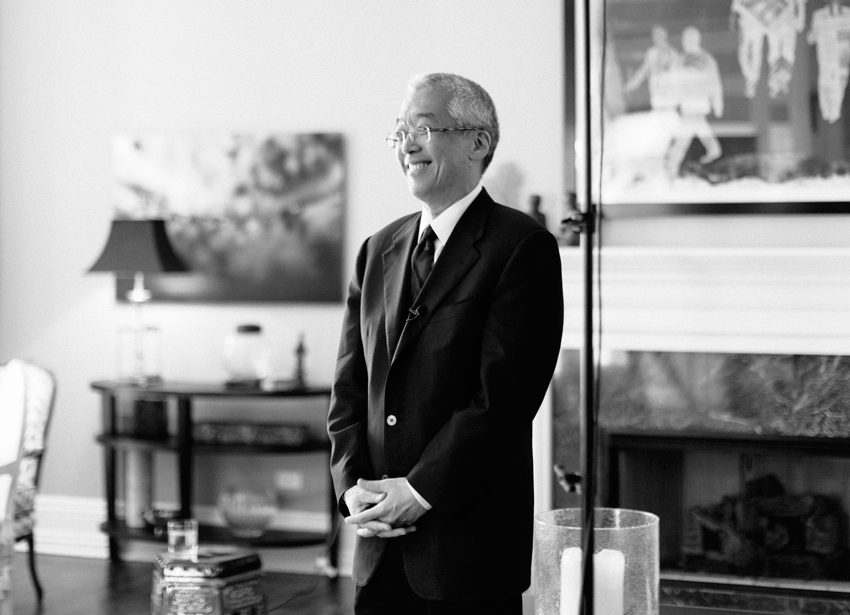
Questions for President Kwang-Wu Kim
DEMO: You became president of Columbia in 2013. What has surprised you about the college?
PRESIDENT KIM: A wonderful surprise was coming to understand more of the history. In particular, I was struck by how much of what is in the [2015] Strategic Plan doesn’t just point the college forward but connects it with its roots. That realization was very gratifying to me because I don’t believe that responsible leadership is about trying to force an institution to break with its past. You want to let go of those things that no longer work, but there has to be some continuity. Otherwise you may lose the connection to mission.
“It’s important to sift through history. It’s also important not to be bound by history.”
The core of our mission statement, the language about preparing young people to become authors of the culture of their times—that still makes me gasp. Any time I repeat those words, especially to people in higher education, they intuitively grasp just how lofty and ambitious a mission that is. That’s one of the shining features of our culture. It never loses its luster for me.
DEMO: Columbia marked its 125th anniversary in 2015. Why is history important to a place like Columbia?
PRESIDENT KIM: Some leaders truly believe that the role of a college president is to come in and radically change an institution. As a president once said to me, “Your job is to help your school imagine what it never imagined it could be.” I don’t believe that, because when presidents ignore history they lose perspective on all of the smart decisions and all of the mistakes that have made their institution what it is. Those presidents often end up spinning their wheels because they either repeat the same mistakes or waste time rediscovering institutional wisdom that already existed. It’s important to sift through history. It’s also important not to be bound by history. Respecting history, understanding it, analyzing what worked and why, and then continually asking ourselves whether a given idea still works in the current context—that kind of organic approach is the most valuable because it enables you to advance in a way that is authentic. Columbia has never been bound by tradition. Indeed, it has a long history of innovation that we probably don’t talk about enough. This gives the college the impetus to always move forward and focus on the next wave of innovative new approaches.